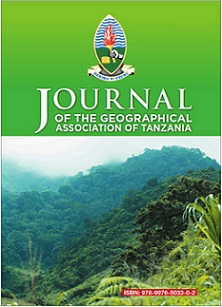Assessment of the Effect of Pastoral Mobility On Food Security in Semi-Arid Areas Of Simanjiro and Handeni Districts, Tanzania
Abstract
This paper assessed the effect of pastoral mobility on food security to the Maasai in Simanjiro and Handeni districts. The data were collected through literature survey, structured questionnaire, in-depth interviews, focus group discussions and participatory GIS. A total of 367 pastoralist respondents who were part of pastoral mobility and eight extension officers were interviewed, one from each sampled village. The IBM Statistical Package for Social Sciences (SPSS) version 20 was used to analyse data. The results showed that most of the respondents, about 61%, indicated that there is no food available for the pastoralists during mobility, which causes them to suffer from food insecurity. Exploratory factor analysis (EFA) identified challenges that pastoralists faced during mobility and at the boma, to include livestock death, wild animals ' attacks, and low price of livestock products produced, drought and shortage of forage; poverty, seasonality, shortage of food, poor diet, and poor food storage. The paper concludes that pastoral mobility has an effect on food security since walking long distance searching pasture and water causes livestock to be unhealthy, which lead to poor production of milk and meat. From these results, there is a need to promote development of climate change resilient livestock species in pastoral areas.
Keywords: pastoral mobility, food security, semi-arid areas, boma, mobility routes



